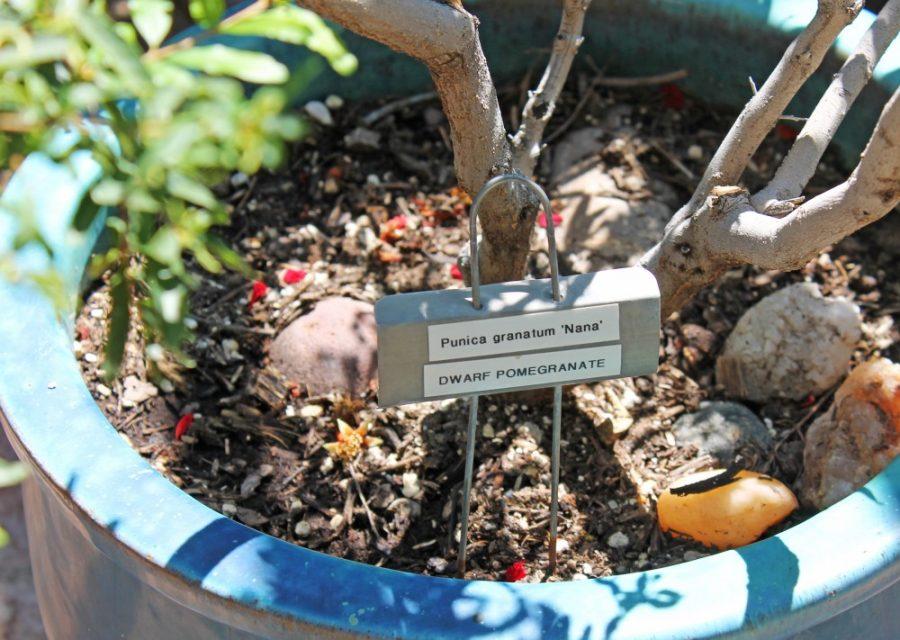The Tucson Botanical Gardens and Catholic Community Services are partnering to document and create a bilingual booklet, “Nuestras Recetas: Food Traditions and Favorite Recipes of Tucson’s Mexican Americans,” composed of recipes from the local community.
The partnership began when the Gardens and CCS worked with Mexican American seniors who had these recipes, and those who worked alongside them wanted to document the recipes.
RELATED: Hundreds of students partake in event to help find communities
Juliet Niehaus, the project director of Nuestras Recetas and the director of horticultural therapy at Tucson Botanical Gardens, decided to apply for a project grant from Arizona Humanities, the Arizona affiliate for the National Endowment for the Humanities. Niehaus received a $5,000 grant to showcase the recipes of the Mexican American senior community and those who wrote them.
“It’s a humanity-focus project, so we are looking at culture through food,” Niehaus said. “We’re looking at the way in which their recipes reveal their daily lives [in] the community, and about how their culture has changed over time.”
Upon collection of the recipes and the history of those giving them, it quickly became apparent that these recipes are less about measurement and more about feeling when it comes to cooking.
“When we did start to collect recipes, we realized most of them had a loose way of describing how they cook their food,” Niehaus said. “It happens when something has been passed down from generation to generation, and it will not be a cup of this and a teaspoon of that; it’ll be a little bit of this and little bit more of that.”
RELATED: Making the most out of microwaveable meals
Celeste Perkins, a Tucson resident, said that in most recipes, from her personal experience or the experience of her friends, it’s impossible to get an exact measurement.
“Your abuela throws in a hand of this, a pinch of this and a sprinkling of that,” Perkins said. “it’s all intuition and very little exacts that help you understand the recipe. You just watch and listen, and when it comes to cooking with family, it isn’t about the eating as much as just spending time together.”
The program will be run bilingually, and translators will help communicate everything the seniors may want to say if English isn’t their primary language.
The collection of recipes and documentation will take place now through May 2018. Niehaus says she hopes this project can bring the community together.
That is why Arizona Humanities awarded a project grant to this project — to help bring the people of Arizona closer. The nonprofit’s mission statement is to build “a just and civil society by creating opportunities to explore our shared human experiences through discussion, learning and reflection.”
“Bringing people together and connecting them to the history of Tucson, and bringing people’s stories together and showing that there are more things that connect us than divide us is what we strive to achieve here at Arizona Humanities,” said Marilyn Murphy, senior marketing and communications coordinator at Arizona Humanities.
Last year, Arizona Humanities awarded over $181,000 worth of funding through 41 grants to projects that helped start a conversation in their communities.
The Gardens and CCS will hold two informational sessions about the project for the community, one of which will be at El Pueblo Neighborhood Center on Thursday, Sep. 7, at 10 a.m. and the other at the Tucson Botanical Gardens in Porter Hall on Thursday, Sep. 21, 10 a.m.
However, if you can’t make either of these events, you can contact Niehaus at the Gardens by email or by phone at 520-326-9686 to find out more about the cultural project.
This project will preserve history, culture and family recipes from Tucson’s history of Mexican American food. This gives the Mexican American seniors in the community an opportunity to tell their stories and preserve family history.
“It’s important to the seniors who are sharing their stories and their culture; many of them are older folks and have so much knowledge and they are the connection between multiple generations, from their grandparents to their grandchildren,” Niehaus said. “It’s important to them that they are contributing in a way to their community, and there is always an amazing response to the seniors, and this booklet is a medium in which they can teach us culture and history.”
Follow David Pujol on Twitter











